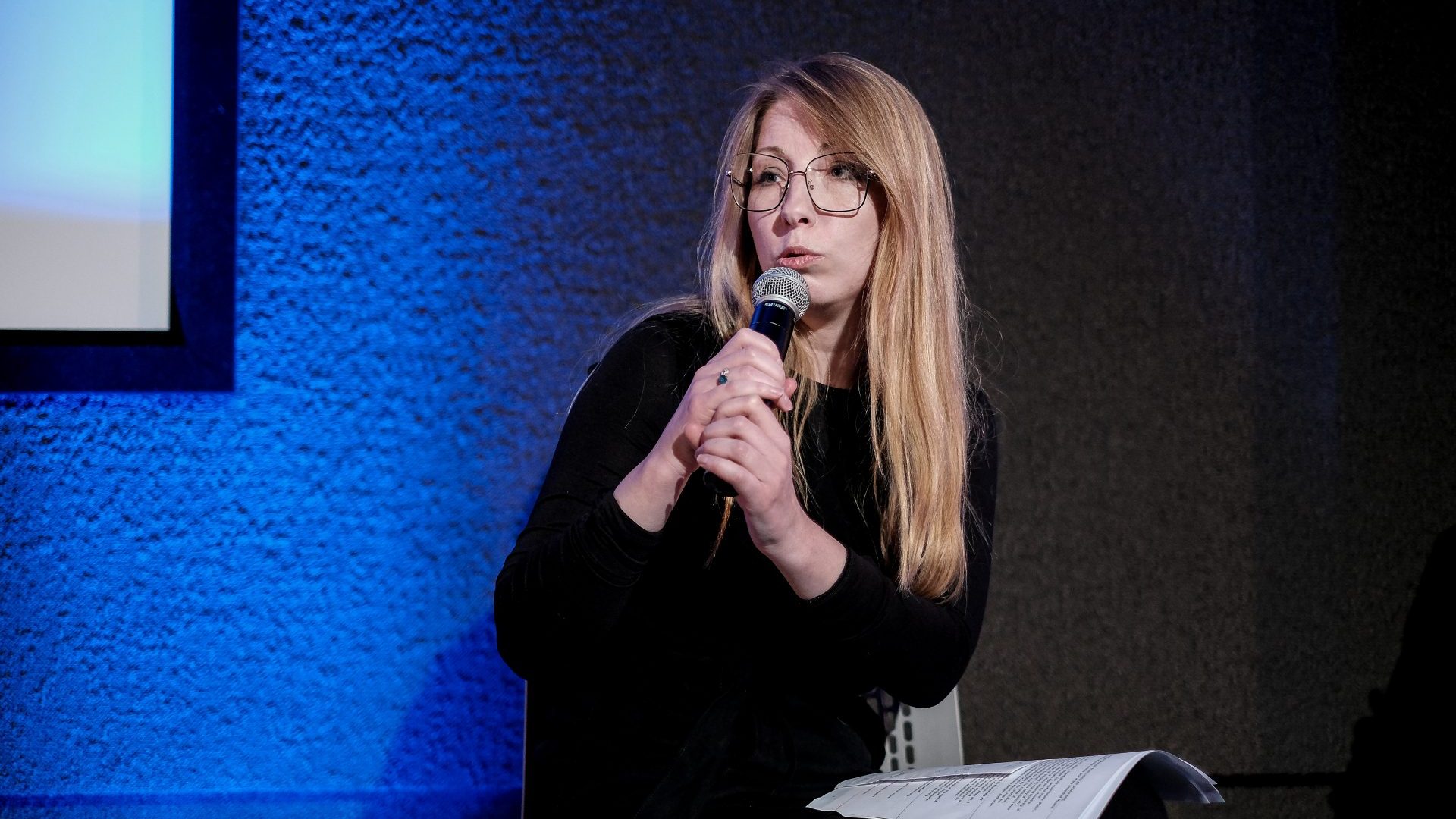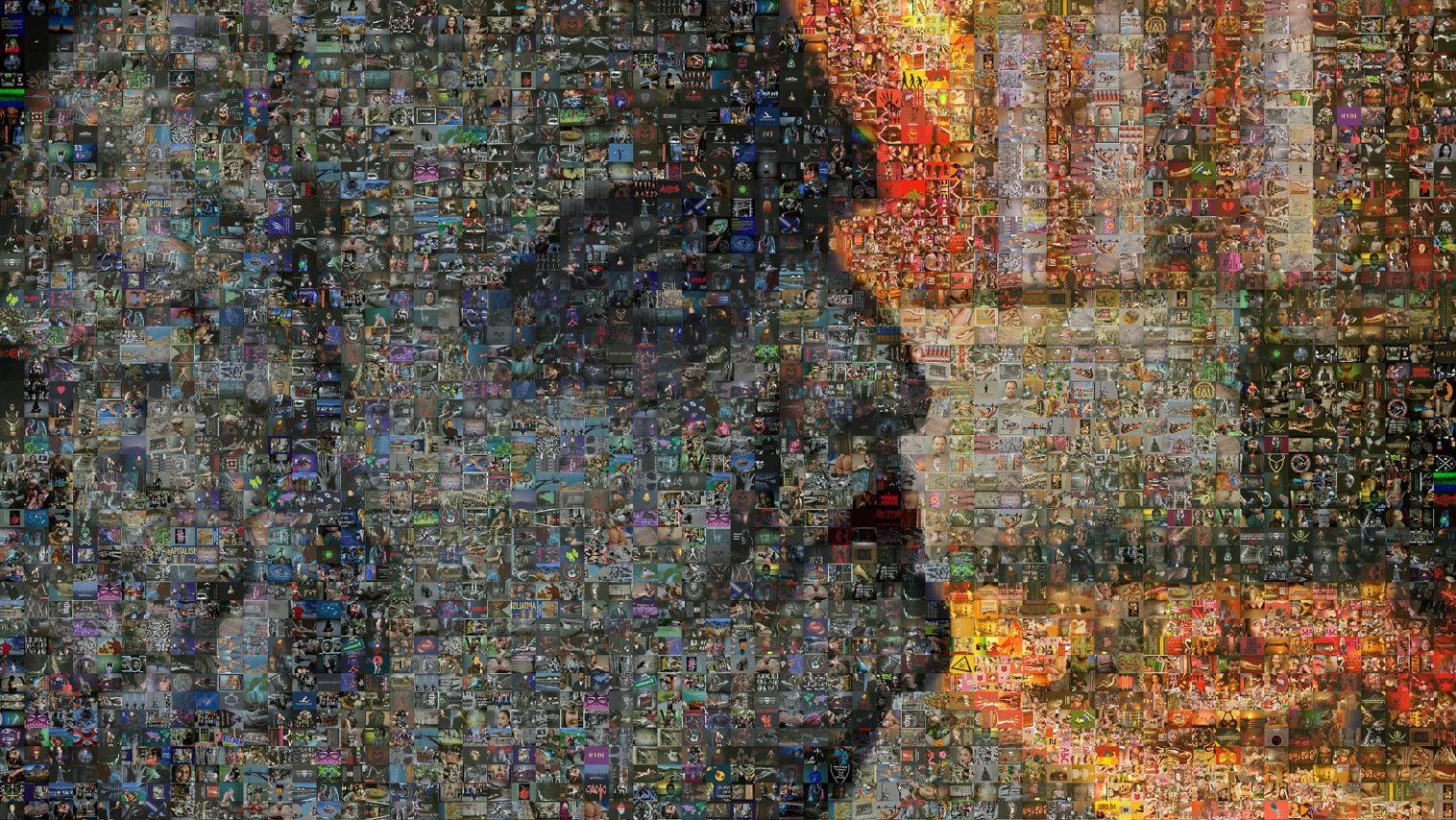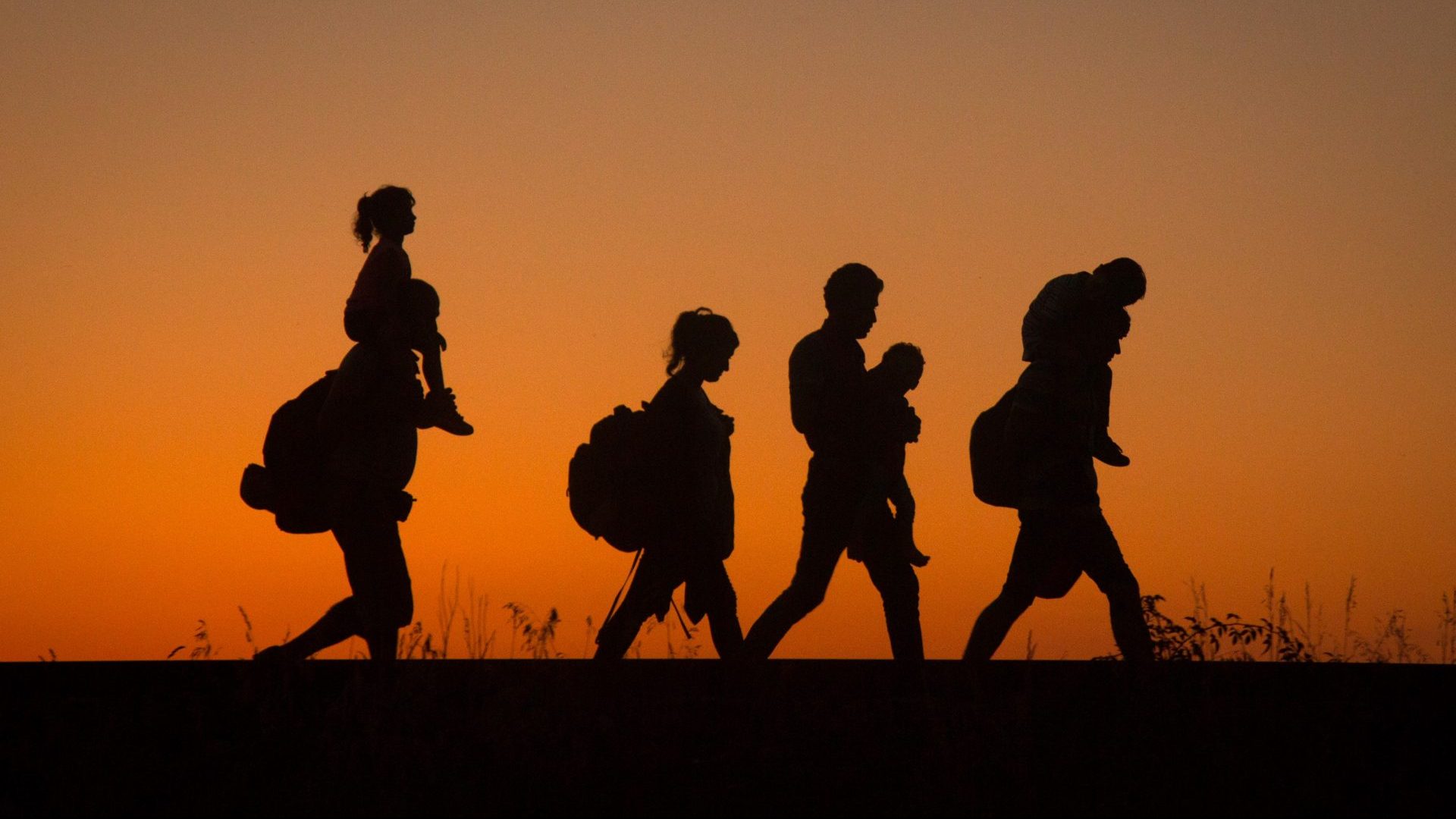There is a photograph of Victoria Amelina which I love. A selfie snapped on the road – de-occupied Kherson – and she’s wearing a bulletproof helmet, flak jacket, and a silly expression. A hand to her head as if to steady the heavy helmet, eyes comically wide and a lopsided smile, as if to say, “Well, isn’t this all quite mad?”
It speaks of someone capable of levity and even self-deprecation in the worst of circumstances. In a sea of those serious-war-reporter flak-jacket selfies on Twitter, her photo made me laugh out loud, and I had to send her a quick message. “Happy to know you,” it ended. “Happy to know you too,” she wrote back, with her characteristic kisses.
Victoria, a Ukrainian novelist turned war crimes researcher, was almost constantly on the road. Interviewing survivors, helping to take humanitarian aid and books to places devastated by Russian occupation. She was tired. Trying to do so much at once. Trying to cope with so much: all that horror, all those stories of torture and execution, all that devastation, and such long periods away from her family.
When I interviewed her for an article in November last year, I asked about the emotional toll. I was in a cafe in Podil, Kyiv, warming up between the frequent blackouts. She was travelling somewhere in Ukraine; we talked over the internet.
“With this amount of horror around, I feel numb,” she said. “I can cry sometimes, but still I’m sure we have anaesthesia. The horror will fall on us later.”
She talked about buildings she loved, mosaics in Sievierodonetsk, towns in Donetsk oblast she couldn’t bear to think about; “the scale of what happened in Mariupol”. And the sheer numbers, the sheer incomprehensible volume, of dead and tortured people.
“It’s impossible to understand that and still be sane,” she concluded, matter-of-fact. But somehow she remained herself: thoughtful, yes, serious, but at the same time this irrepressible humour, mischief, deep warmth and openness.
We were talking for an article I was writing about Volodymyr Vakulenko, her murdered colleague. He was a children’s writer, a punk poet, a live wire in the country’s flourishing literary scene. And a fierce supporter of an independent Ukraine. Enough to get you killed under Russian occupation.
I knew some of the history of Stalin killing Ukrainian writers in this region – knew that the manuscripts of that pioneering generation of 1920s writers were kept in Kharkiv’s literary museum. Victoria helped me, more than anyone, understand this context, put the jigsaw pieces together. She absolutely embodied that particular Ukrainian trait: a clear-eyed, eloquent fury. It’s been there in almost every interview I’ve done, reporting across Ukraine since March 2022. It’s the very opposite of despair: a deep understanding of what they’re fighting for, and of what they’re fighting against: Imperialism, brutality.
She talked about how Russians, in occupied areas, would target activists and teachers and mayors in order to “break the community”. To break society. She talked about the history of impunity, of Soviet war crimes and the famine-genocide never punished. She had a powerful, singular voice and was using it to channel this eloquent fury straight at the wider world. She was going to get results.
Digging into the pain of others, as a reporter, can give you a tremendous feeling of guilt when you get to walk away. You take their stories and use them and leave, and you just hope that the people who trusted you will feel you did a good job; that they don’t regret talking to you; that it didn’t leave them sadder, more despairing. You just have to do the best you can. But the person whose grief stays with me is Volodymyr’s mother, Olena. She was another woman with that eloquent fury, that way of expressing such precise contempt for the people who occupied her land and took her son from her.
They fobbed her off for months, the Russians, promising Volodymyr would turn up. All that false hope that eventually died, and how much worse that is than knowing straight away. I often think of her, and I watched over the months as Victoria posted updates on social media, photos of her with Olena.
It had been Victoria who first went to dig up the diary Volodymyr had hidden in his father’s garden. Now, as the months went by, she and other PEN Ukraine members were holding events in the village Olena and the family still live in; she took his Prix Voltaire Award back to Olena, to go up alongside all his other prizes; posted photos of them all together, on a trip to Kyiv. I felt Olena was in safe hands. I felt that because of Victoria, here was some scrap of good coming out of all this misery. And I loved Victoria all the more, seeing all this.
“I’m writing from a sleeping bag in the cold, in the middle of nowhere,” she wrote to me, cheerfully, earlier this year, “but I hope my hugs will reach you”. I made a mental note to bring her the silk sleeping bag liner that keeps out the worst cold – I was about to leave for a third stint in Ukraine.
A bit later, from Kharkiv, we planned a trip to Kramatorsk. I had a friend’s car and was going to drive east anyway. “I love Kramatorsk,” she wrote, and we both enthused about this city – steel mill, working-class – which had become de facto capital of Donetsk oblast since 2014. She knew the region well, she’d set up a literary festival in the small and wonderfully-named Niu York. It’s where she’d met Volodymyr – they had both worked along the front lines since 2013, pursuing a kind of writer’s war activism – discussions, events, the power of books. The power of their own Ukrainian language.
But the timings failed us. We didn’t drive east together. I last saw her in a Kharkiv restaurant: her long fair hair, her huge grin as she spotted me across the room. I bounded over like a kid. When I went to Kramatorsk shortly after, I ate, like everyone else, in the Ria pizza restaurant. I knew the risks, like everyone else there. Like Victoria.
But last week I flinched at the news that this restaurant had been bombed one evening, one busy evening, that packed hour before the early curfew when correspondents and aid workers and off-duty military personnel pile in for dinner. And I braced myself for the likelihood that I’d know some names of those who were inside. But I really didn’t think it would be her.
There will be so much written about this extraordinary woman in the days and weeks to come. It will help, a bit, those who are grieving. But nothing can change what Russia has done. Let us not say, lazily, that Victoria Amelina died “in the war”. She was killed, and Russia killed her.



